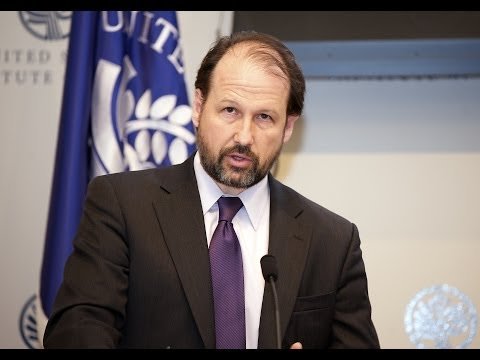By Hamid Bayati

TEHRAN - Daryl G. Kimball, the executive director of the Arms Control Association, says the European Union, Germany, and the Biden administration are united in their positions that a full implementation of the Iran nuclear deal by each side is a “win-win”.
“The EU and Germany and the Biden administration all agree that that full implementation and compliance with the JCPOA is a win-win,” Kimball tells the Tehran Times as German Foreign Minister Heiko Maas has called for a “nuclear agreement plus”.
The nuclear deal, officially called the Joint Comprehensive Plan of Action (JCPOA), was signed on July 14, 2015, between Iran, the five permanent members of the UN Security Council (Russia, China, France, Britain, and the U.S.) as well as Germany and the European Union. It went into effect on January 16, 2016.
However, during his presidential campaigns in 2016, Donald Trump launched intensive campaigns against the multilateral agreement and threatened to tear it up if he is elected president. On May 8, 2018, Trump officially pulled the U.S. out of the landmark agreement and returned nuclear sanctions, and added new harsh ones under his administration’s “maximum pressure” campaign against Tehran.
Trump imposed a total ban on Iran’s oil export and even made the import essential commodities such medicine and medical supplies very difficult. He even disregarded demands by the United Nations to loosen sanctions during the coronavirus pandemic.
Now hopes are rising for the reactivation of the nuclear deal as President-elect Joe Biden will enter the White House on January 20. Biden served as vice president under President Barack Obama, when the JCPOA was inked.
Kimball says each side of the nuclear deal “must avoid provocations and statements and threats that could derail” the revitalization of the JCPOA.
Here is the text of the interview with Kimball:
Q: Biden wrote in a September op-ed for CNN that “I will offer Tehran a credible path back to diplomacy,” if he is elected president. However, Trump is moving quickly to increase sanctions against Iran, policies that would be difficult for a new president to reverse. How could Biden overcome barriers?
A: With one of the key supporters of the JCPOA entering the White House on January 20, the United States and Iran and the other parties to the agreement have an important opportunity restore compliance with the agreement, which will help restore confidence that Iran is not pursuing the development of nuclear weapons and will help provide the economic and financial relief that the Iranian people were hoping for when the JCPOA was concluded in 2015. Mr. Biden's public remarks clearly indicate that he supports a simultaneous restoration of compliance with the terms and obligations of the JCPOA. Biden, once sworn into office, can waive the application of the nuclear-related sanctions that the United States waived when Iran implemented its obligations under the JCPOA in January 2016, as well as other duplicative sanctions imposed by the Trump administration. Washington and Tehran might agree to make those sanctions waivers effective when the IAEA confirms that Iran has once again fully met its obligations under the JCPOA.
Q: The EU foreign policy chief, Josep Borrell, has stressed that the 28-member bloc remains intent on preserving the nuclear deal but German Foreign Minister Heiko Maas recently said that the 2015 deal was no longer enough and a form of “nuclear agreement plus” is needed, so how do you explain this duality?
There is no “duality” at play here. The EU and Germany and the Biden administration all agree that that full implementation and compliance with the JCPOA is a win-win, but it is clear that the JCPOA does not address every security issue of concern to Iran and to other JCPOA participants. Foreign Minister Maas is referring to the interest of his government, and others, for a dialogue with Iran on other issues of mutual concern, including Iran’s future plans for its nuclear program, missile proliferation in the Middle East, and the resolution of destabilizing and deadly conflicts in the region, including the horrific war that is devastating the people of Yemen.
Q: Saudi Arabia says the Persian Gulf Arab states must be consulted if the nuclear agreement is revived. What is your view?
A: Saudi Arabia is not a party to the JCPOA and should be informed about developments relating to the JCPOA like any other member of the United Nations and the IAEA.
Until such time as President Biden’s and President Rouhani's representatives can formally meet and work out an agreement on the process and sequencing for the United States to rejoin the JCPOA and waive the relevant sanctions, and for Iran to fully meet its JCPOA obligations, each side must avoid provocations and statements and threats that could derail this important process.

No comments:
Post a Comment